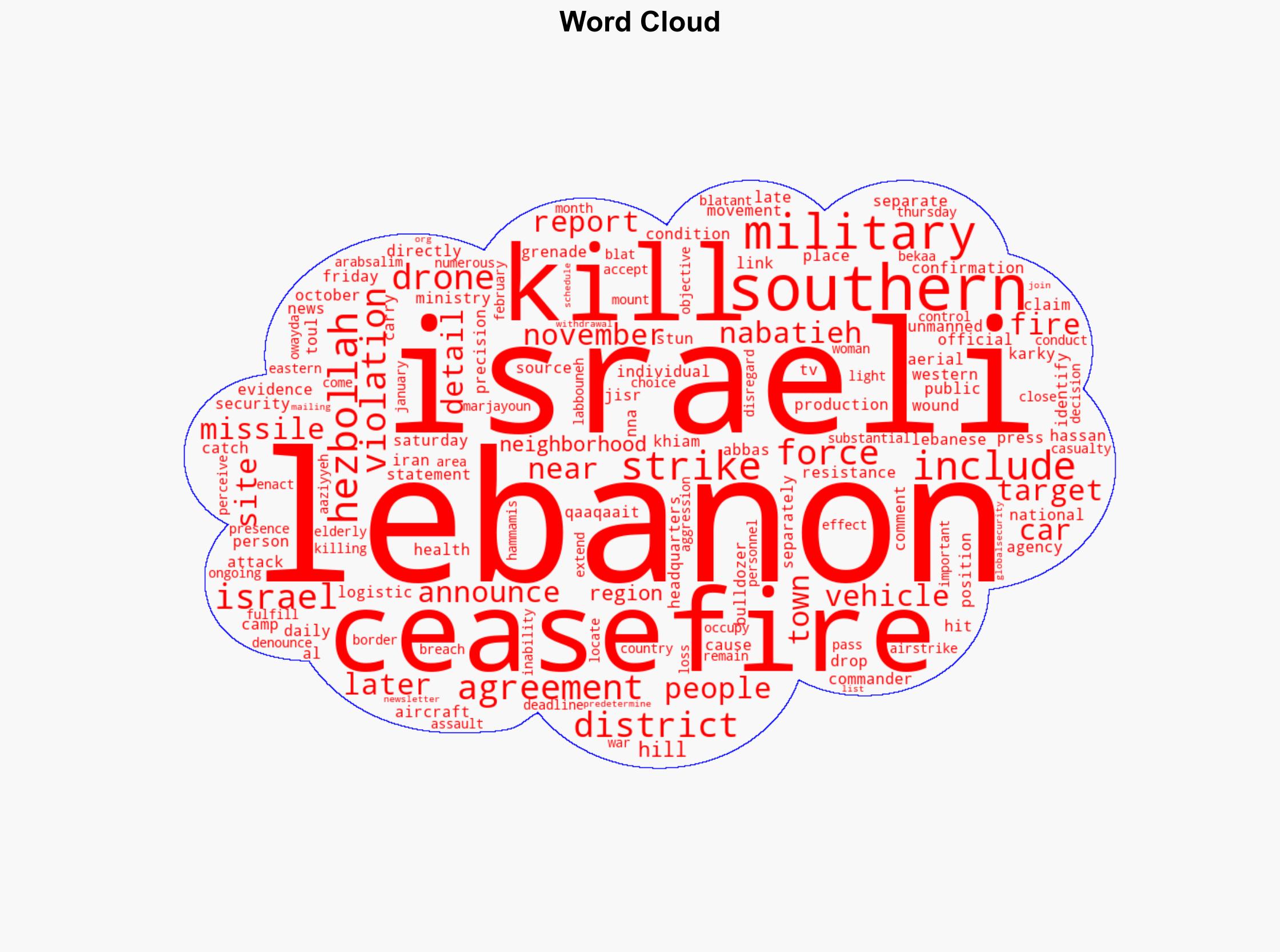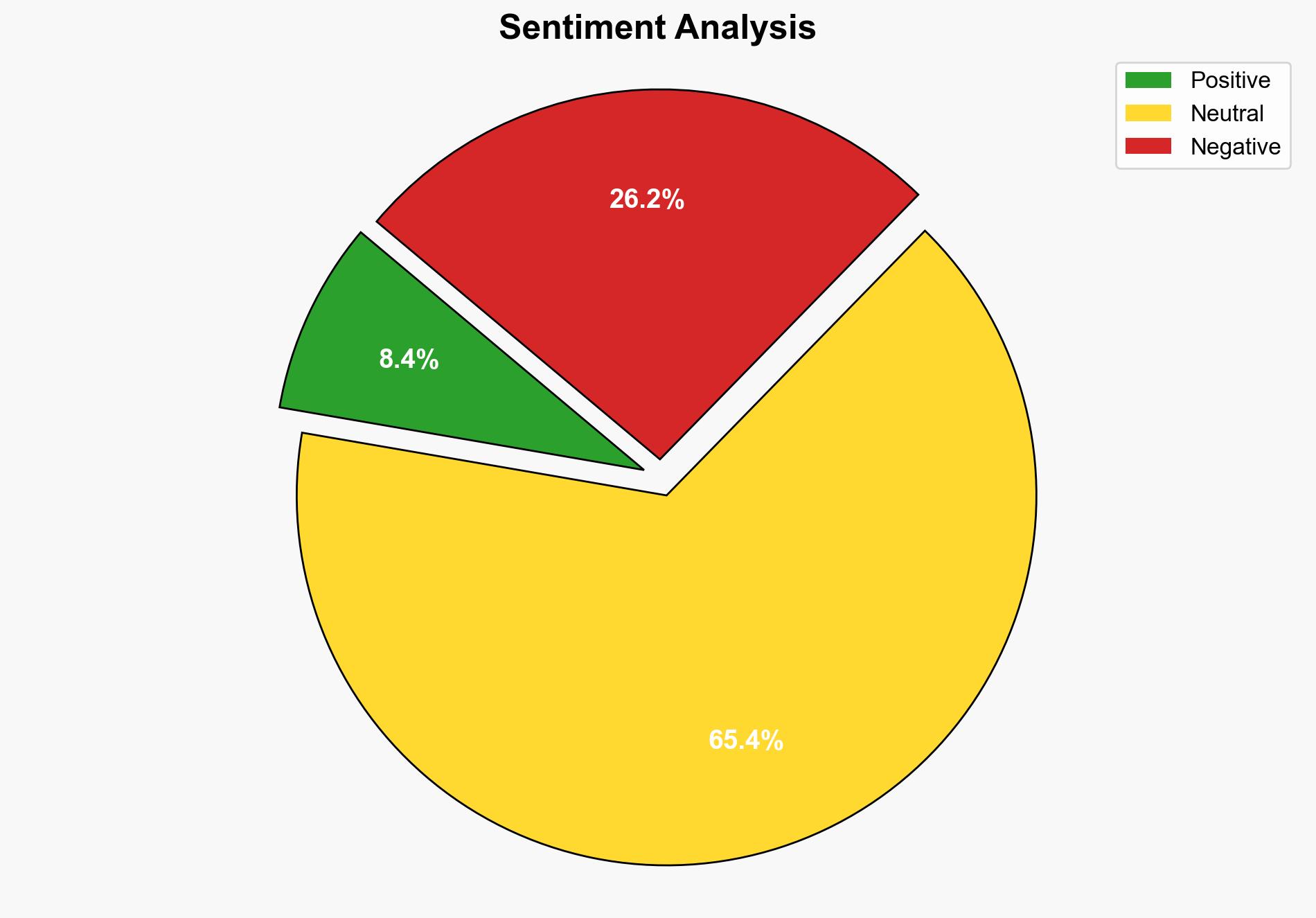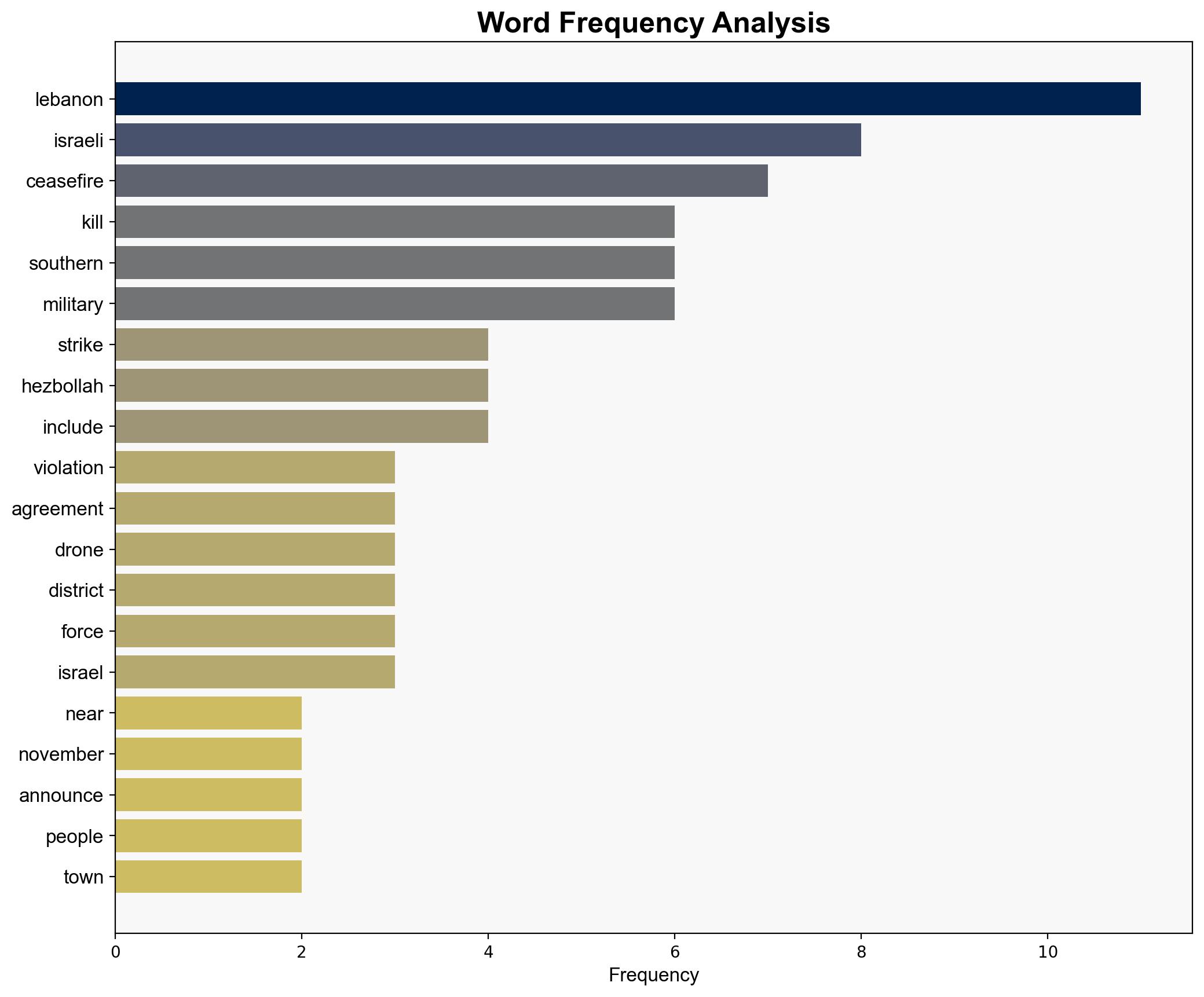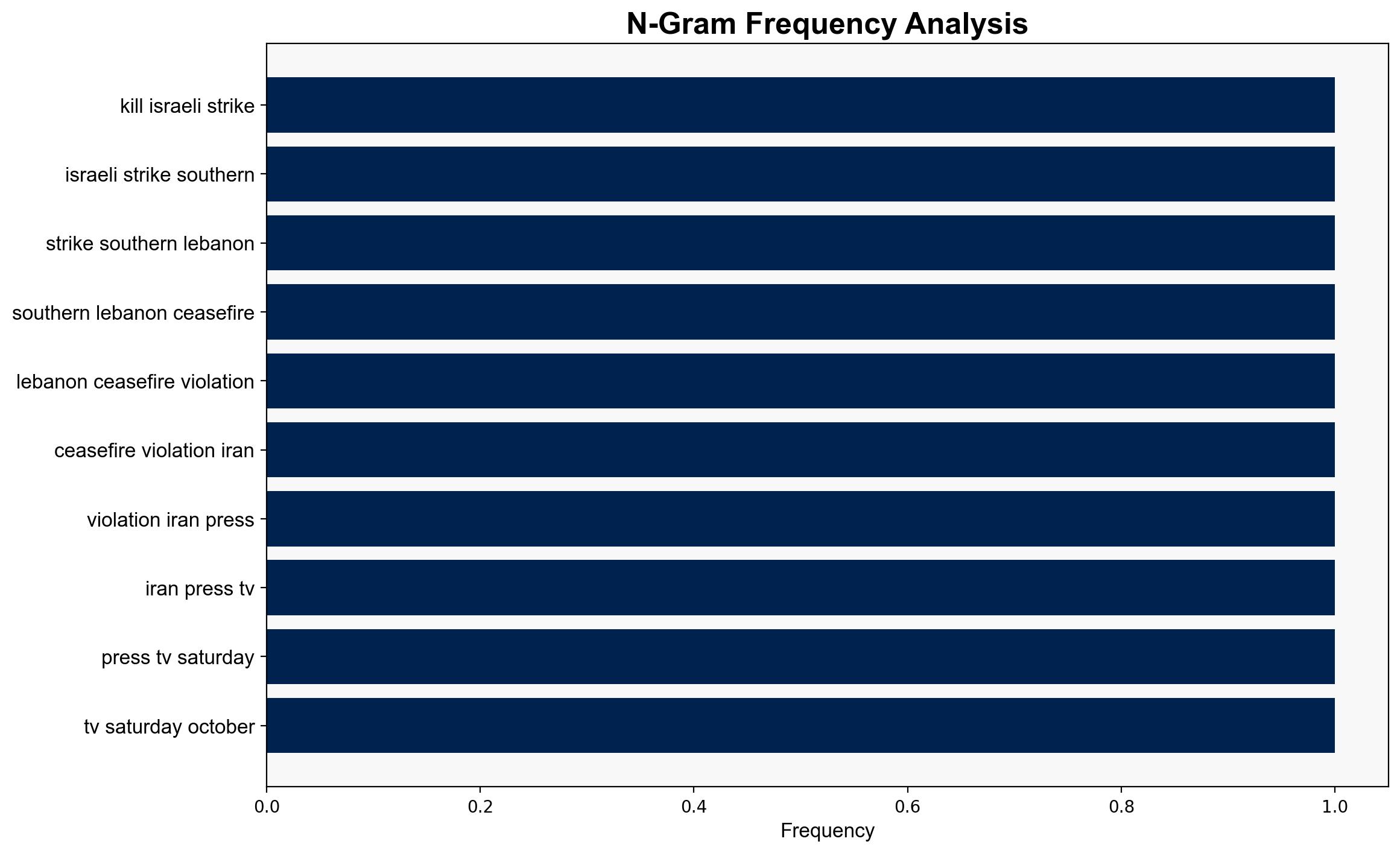Three killed in Israeli strikes on southern Lebanon amid ceasefire violations – Globalsecurity.org
Published on: 2025-10-26
Intelligence Report: Three killed in Israeli strikes on southern Lebanon amid ceasefire violations – Globalsecurity.org
1. BLUF (Bottom Line Up Front)
The most supported hypothesis suggests that the Israeli strikes on southern Lebanon are a strategic response to perceived threats from Hezbollah, despite ongoing ceasefire agreements. Confidence in this hypothesis is moderate due to conflicting reports and lack of independent verification. Recommended action includes diplomatic engagement to reinforce ceasefire terms and prevent further escalation.
2. Competing Hypotheses
1. **Hypothesis A**: The Israeli strikes are a preemptive measure against Hezbollah’s military capabilities, specifically targeting logistics and missile production sites to neutralize potential threats.
2. **Hypothesis B**: The strikes are a reaction to specific ceasefire violations by Hezbollah, intended to demonstrate military resolve and deter further infractions.
Using Analytical Competing Hypotheses (ACH), Hypothesis A is better supported by the pattern of targeting logistics and missile sites, indicating a strategic focus on degrading Hezbollah’s military infrastructure. Hypothesis B lacks consistent evidence of specific provocations that would justify the timing and scale of the strikes.
3. Key Assumptions and Red Flags
– **Assumptions**: It is assumed that the Israeli military actions are based on credible intelligence regarding Hezbollah’s activities. Another assumption is that Hezbollah’s actions are perceived as violations of the ceasefire.
– **Red Flags**: The lack of independent verification of the events and the potential bias in reporting from involved parties raise questions about the accuracy of the information. The absence of Hezbollah’s official response is a notable gap.
4. Implications and Strategic Risks
The continuation of such strikes risks escalating into broader conflict, potentially drawing in regional actors and destabilizing the area further. Economically, prolonged conflict could disrupt trade routes and impact local economies. Geopolitically, it may strain Israel’s relations with Lebanon and other neighboring countries, while also affecting international diplomatic efforts in the region.
5. Recommendations and Outlook
- Engage in diplomatic dialogue with both Israel and Lebanon to reinforce the ceasefire terms and establish a monitoring mechanism to verify compliance.
- Encourage regional stakeholders to mediate and facilitate communication between the conflicting parties to prevent further military engagements.
- Scenario Projections:
- Best Case: Successful diplomatic intervention leads to a reinforced ceasefire and reduced hostilities.
- Worst Case: Escalation into a broader regional conflict involving multiple state and non-state actors.
- Most Likely: Continued sporadic violations with intermittent military responses, maintaining a fragile status quo.
6. Key Individuals and Entities
– Abbas Hassan Karky: Identified as a logistics commander for Hezbollah.
7. Thematic Tags
national security threats, regional conflict, ceasefire violations, Hezbollah, Israel-Lebanon relations





